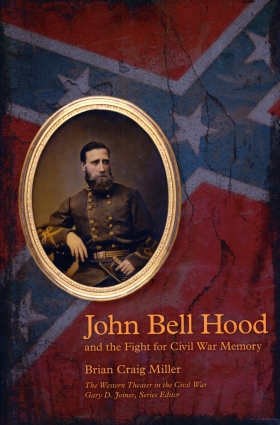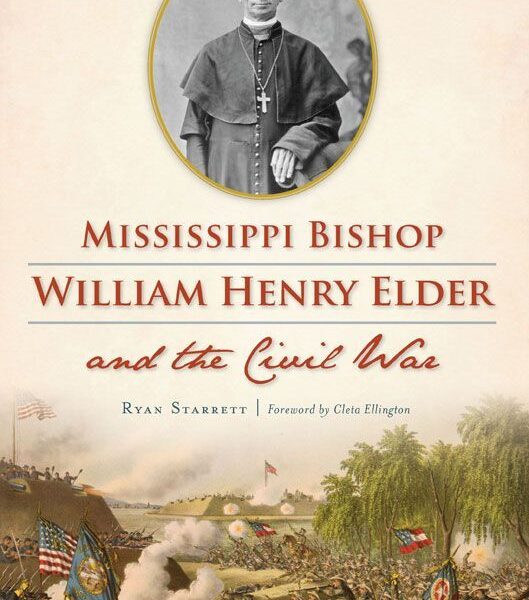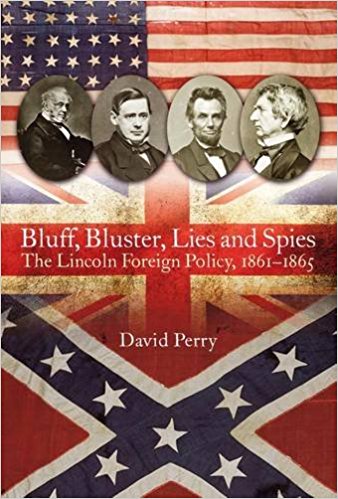After being seriously wounded at Antietam, Major Charles Mills eventually returned to the Army of the Potomac as a staff officer and served during some of the bloodiest campaigns of the Civil War. He assured his parents on more than one occasion that as an assistant adjutant general, he was safe from enemy fire. On March 31, 1865, standing with a group of officers, including Major General Andrew Atkinson Humphreys, he was killed by a ricocheting solid shot near Hatcher’s Run.
The Civil War yielded many such poignant stories. In this case, fortunately, Mills left behind a fine trove of letters. Through Blood and Fire is a new and expanded edition of a book privately published in 1982 in a limited edition. J. Gregory Acken, who has edited other valuable Civil War collections, offers an expanded version with a thorough introduction, extensive notes, and good index. Acken provides the kind of critical context on campaigns and battles that many such edited works lack.
Hailing from a prosperous Boston family, Mills graduated from Harvard in 1860. His slight build and seemingly frail appearance may have hampered his efforts to gain an officer’s commission. But in August 1862, he was finally able to join the 2nd Massachusetts Infantry. Slowly recovering from his leg wound after Antietam (walking and even riding a horse remained difficult and sometimes painful), Mills nevertheless would not sit out the rest of the war. While serving on the staff of several generals, Mills made pointed observations and, as was predictable given his background, often assessed his superiors (at least initially) on whether they appeared to be “gentlemen.” Mills’s own views tended toward the conservative. He had little good to say about Black troops, but he thought even less of their officers.
Like many other soldiers, he often mentioned food and the importance of letters from home. Early in his service he marveled at the fact that neither he nor his fellow soldiers seemed to truly hate the Rebels, but otherwise he had little to say about the enemy. He wrote detailed accounts of various operations of the Army of the Potomac in 1864 and was especially good on the lengthy and complex Petersburg campaign.
Mills commented on a host of matters—sometimes perceptively, sometimes mistakenly. In late August 1862, as the Second Bull Run campaign was unfolding, he expected a “Waterloo” to be fought any day. In June 1864, perhaps because of his own experience of being wounded and brushing aside any concerns about the plight of Union prisoners, he remarked that “those who get through this campaign with nothing worse than capture are to be congratulated” (137). He peppered his letters with pointed assessments of his superiors. Mills at first praised Brigadier General James Ledlie before recognizing that man’s serious flaws. In other cases, he warmed to an officer about whom he had initially expressed skepticism. Despite his admiration for McClellan, Mills predicted disaster should Little Mac be elected president. Like many other soldiers, he could not abide the peace plank in the 1864 Democratic platform. Mills declared himself a member of the “Union Party” because the “shoddy speculators . . . are to a man on the Republican side” (195).
Offering candid assessments of military operations, Mills expressed discouragement during the early phases of the Petersburg campaign: “The men are getting to look on a fight as useless butchery” (142). He found not only the larger engagements but the continuous artillery and small arms fire—along with daily casualties—to be especially demoralizing. This did not mean, however, that Mills was losing faith in the Union cause. Even so, his letters revealed very little about his own motives for serving.
Mills wrote a great deal about the duties of an assistant adjutant general, so readers will learn much about staff work at the division level. Mills admitted enjoying a position in which “one learns a great of the hidden motives, the orders that are never published to the world at large, and perhaps never carried out, to say nothing of being brought into contact with all the celebrities of the army.” This made military life much more interesting, not to mention the “advantages, which are numerous, especially an amount of comforts & class of duties which have enabled me, cripple as I am, to keep on duty very day of the campaign” (221).
Students of the Civil War can indeed be glad that Major Mills was able to do his duty and record his experiences and opinions. Through Blood and Fire is an excellent collection of letters, valuable to the researcher as well as the casual reader. Acken has done a superb job of editing them.
George C. Rable is the author of Conflict of Command: George McClellan, Abraham Lincoln, and the Politics of War, which will be published in the fall of 2023 by Louisiana State University Press.





